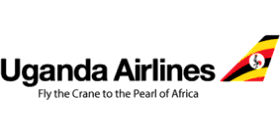Crisis Averted? Tunisair Under Pressure with 15-Day Ultimatum for Recovery Plan

The national carrier Tunisair finds itself at a critical juncture following an urgent directive from Tunisian Minister of Transport, Rachid Amri, who has demanded a comprehensive recovery roadmap be presented within just 15 days. This mandate arrives amidst significant leadership changes, including the recent dismissal of board chairman Habib Mekki in July and the subsequent appointment of a new management team.
This heightened sense of urgency reflects immense pressure on the airline to stabilize operations, redefine its strategy, and address pressing challenges that extend their implications well beyond Tunisia’s borders, notably affecting sub-Saharan Africa’s aviation and tourism sectors.
Tunisair's operational difficulties are clearly apparent in its current capacity. The airline, once a symbol of North African connectivity, now operates with fewer than 10 aircraft in its proprietary fleet. The majority of its flight operations are sustained through short-term leased planes, a model fraught with concerns regarding cost and reliability. This situation not only signals an immediate necessity for structural reforms but also suggests a potential shift in how regional partners and African tour operators might engage with Tunisair, which has historically served as a vital link between North Africa and the wider continent.

Photo Credit: Google
The 15-day ultimatum unequivocally underscores the government’s determination to achieve rapid and measurable progress. Minister Amri has specifically called for dedicated teams to be assigned to the development and subsequent rollout of the roadmap. This targeted approach is designed to ensure that the turnaround plan is not merely strategic in principle but also highly actionable and subject to close monitoring during its execution.
For African stakeholders, this indicates that Tunisair could soon enter a phase of accelerated transformation, potentially leading to new opportunities or, conversely, disruptions. This transition is particularly significant as many African markets are actively seeking to strengthen air connectivity and capitalize on the increasing demand for both intra-African and international travel.
Historically, Tunisair has played a pivotal role in establishing air links between West and Central African cities and destinations in Europe and the Maghreb. Its current fleet constraints and organizational restructuring could impact various aspects, from flight frequencies to route reliability, thereby potentially affecting travel flows across North, West, and Central Africa, as well as onward connections to Europe and beyond.
Industry observers are keenly watching to discern whether the airline’s new leadership will prioritize fleet renewal, renegotiate existing leasing contracts, or pursue strategic partnerships as a means to restore stability. The comprehensive roadmap is expected to address core issues such as fleet modernization, staff restructuring, financial sustainability, and overall service reliability.
For its African partners, including tour operators, hospitality providers, and aviation service firms, these forthcoming measures will be crucial in determining how and when Tunisair can potentially reclaim its former status as a reliable conduit for both business and leisure travelers. The Tunisian government’s proactive intervention aligns with a broader and increasingly prevalent trend across Africa’s aviation sector, where national carriers are facing rising expectations to demonstrate enhanced operational efficiency and commercial viability.
The Tunisair case serves as a poignant reminder that mere ownership is insufficient; airlines must continuously adapt to shifting market realities, intense cost pressures, and evolving passenger expectations. The ultimate success or failure of this recovery roadmap could significantly influence similar recovery strategies for other African carriers currently navigating post-pandemic turbulence or complex organizational challenges.
Looking ahead, the next two weeks are poised to be undeniably crucial for Tunisair and its extensive network of stakeholders. The dedicated teams entrusted with crafting and implementing the recovery plan will face the challenge of balancing immediate imperatives—such as ensuring adequate aircraft availability and maintaining route integrity—with more ambitious, longer-term goals for growth and innovation.
The outcome of these efforts will transmit a powerful signal to the wider African travel industry regarding the airline’s resilience, its capacity for adaptability, and its enduring relevance within the fiercely competitive global aviation landscape. For Africa’s vital tourism sector, the future trajectory of Tunisair carries significant weight. Improved reliability and modernized services could unlock fresh avenues for cross-border travel, enhance access to emerging tourism destinations, and robustly support the continent’s overarching economic integration goals.

Photo Credit: Google
Conversely, any delays or missteps in the recovery efforts risk undermining confidence among international partners and potentially diminishing the airline’s pivotal role as a gateway connecting Africa, Europe, and the Middle East. As this critical countdown commences, sub-Saharan travel professionals are strongly advised to monitor these developments closely, as the unfolding Tunisair story is more than just about one airline’s struggle for survival—it is a significant bellwether for the evolving dynamics of African aviation and the array of business opportunities, strategic partnerships, and profound market shifts that are set to define the sector in the years to come.
Recommended Articles
Africa-Asia Skies Align: Uganda Airlines & Air India Forge Landmark Connectivity Deal

Uganda Airlines and Air India have forged a strategic interline partnership, effective from August 25, 2025, to enhance ...
Africa Soars: Dar es Salaam-Lagos Direct Flights Ignite East-West Connectivity Revolution

Air Tanzania has launched direct flights between Dar es Salaam and Lagos, promising to transform African travel and trad...
Congo Airways Soars Back: New Embraer E190 Fleet to Disrupt African Skies

Congo Airways is preparing for a strategic return to operations, anchored by the acquisition of an Embraer E190 after a ...
Nigeria Fuels African Flight Boom: Driving TAAG Angola's Bold Expansion

TAAG Angola Airlines is significantly expanding its operations in Nigeria, aiming to establish Angola as a key aviation ...
Africa's Skies Soar: Aero Contractors Unveils Game-Changing Aviation Maintenance Hub

Aero Contractors, Nigeria's oldest aviation company, is leading innovation in Africa's aviation sector through its advan...
You may also like...
Haaland's UCL Rampage: Brace, Record, and X-Rated Fury Rocks European Football!

Manchester City were held to a frustrating 2-2 draw against Monaco in the Champions League, despite Erling Haaland's two...
Manchester United's Managerial Maze: Amorim on the Brink, Solskjaer's Ghost Looms

Ruben Amorim faces unprecedented pressure at Manchester United as inconsistent results and a low Premier League standing...
Real-Life Couple Justin Long & Kate Bosworth Unleash 'Coyotes' Horror Comedy, Securing UK Deal

Real-life partners Justin Long and Kate Bosworth star in the new horror comedy and survival thriller “Coyotes,” a film t...
Kenyan Star Bahati Ignites Firestorm with Provocative New 'Seti' Track!

Bahati has ended his musical hiatus with the controversial new song "Seti," featuring explicit content that deviates fro...
Global K-Pop Domination Ignored by Grammys? A Critical Look

Korean pop music has achieved global megaforce status, dominating charts and captivating millions of fans worldwide. Des...
One Direction Reunites! Global Pop Idols Confirm Massive New Project

One Direction stars Louis Tomlinson and Zayn Malik are reportedly reuniting for a Netflix road trip documentary, set to ...
Royal Arrival: Victor & Henrietta Thompson Welcome Baby Princess Zivah!

Gospel singer Victor Thompson and his wife, Henrietta, have joyfully welcomed their baby girl, Zivah Ufuoma Tamunopakiri...
Viral Sensation: M&S 'Cuddle' Jumper Takes Autumn by Storm at Just £26

Discover the M&S Textured Crew Neck Jumper, a viral sensation perfect for colder days. Praised for its luxurious feel, v...